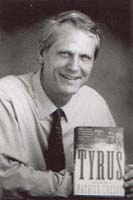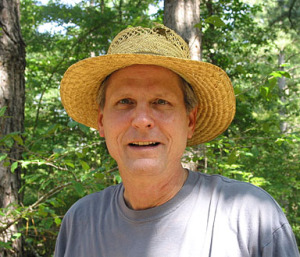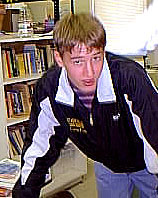Major Works
- Ryan’s Woods: A South Side Boyhood Fifty Years Ago (2013) novel
- Tyrus: An American Legend (2002)
- Lake Shore Drive, 1992 (novel)
Patrick Joseph Creevy: A Biography
by Casey Pratt (SHS)
Patrick Joseph Creevy was born in Chicago, Illinois, on December 11, 1947. He is the son of Mary Frances (Lucas) Creevy, and Robert Creevy, a pharmaceutical manufacturer. After obtaining his high school diploma, Creevy attended Holy Cross College, where he received his Bachelor of Arts degree in 1970. Next, Creevy enrolled at Harvard University, and in 1975, he received his Ph.D. (Padgett,Internet). Just after Creevy earned his B.A. from Holy Cross College, he married architect Susan O’Conner, August 15, 1970. After marriage, the Creevys went on to have five children: Caitlin, Connor, Francie, Patrick, and Bridgid (Olendorf 94).
Creevy’s career as a writer has just begun (See update below). So far he has published only one book—Lake Shore Drive (1992) (Shirley et al. 20). Even though he has only one book to credit to his name, he is currently working on another. The novel will be entitled Tyrus. Along with his book, Creevy has written many academic publications in Victorian literary studies and architectural theory (Olendorf 94). Along with being a writer, Creevy currently teaches English at Mississippi State University, in Starkville, Mississippi, where he received the John Grisham Faculty Excellence Award in 1993 (Padgett, Internet). Creevy resides in Chicago, Illinois, with his architect wife and children when he is not teaching 19th-century British literature at MSU in Starkville Mississippi.
UPDATE: 2016
Since this biography was first written, Creevy has written two more novels, Ryan’s Woods: A South Side Boyhood Fifty Years Ago (2013) and Tyrus: An American Legend (2002) and has a third nonfiction work circulating publishing houses. Creevy’s latest work of fiction, Ryan’s Woods: A South Side Boyhood Fifty Years Ago, is a coming of age story about Keven Collins growing up on the South Side of Chicago. The novel is also somewhat reminiscent of Creevy’s childhood in Chicago although he says the novel is not autobiographical. There are many aspects of the story that play off experiences in Crevy’s own life, including the loss of a dear friend at a young age. Tyrus is the fictional story of Tyrus Raymond Cobb, who was elected to the Baseball Hall of Fame, and whose father was a former state senator, W. H. Cobb, who was shot at close range by his wife of twenty-some years when Ty was nineteen years old.
Patrick Creevy is now semi-retired and is professor emeritus at Mississippi State University. His most recent novel, Ryan’s Woods, is a coming of age story about Keven Collins growing up on the South Side of Chicago. Creevy lives in Evanston, Illinois, with his wife Susan, who was an architect in Chicago, but she has now retired. The Creevys purchased a farm near Starkville in 1995, so she now is free to join her husband on his regular trips south. Although he is professor emeritus, he continues as a part-time departmental lecturer at MSU.
Reviews
A Review of Lake Shore Drive
by Casey Pratt (SHS)
In life, people come across problems of all sorts, and through the resolving of these problems, they become closer to family. Family can get a person through the toughest of situations. In Patrick Creevy’s Lake Shore Drive, the protagonist, Peter Roche, suffers from undeniable fear. From the destruction of his friendship with John Lemaster, to the sympathetic loss of his father to cancer, Peter goes through every night and day with the idea that there is no hope, only a growing fear. Through the help of friends and family, Peter slowly but surely overcomes his fear. With secrets revealed along the way, the novel becomes more than just a struggle over a simple mental breakdown It gives the reader a chance to see what brought about all of the turmoil.
As the book begins, Peter Roche is having an appointment with Dr.Conlon, his psychologist and later friend, and this event is the start of Peter’s long quest to overcome fear (Creevy 27). Following the first meeting, Peter feels sane for a short period of time, which to him is a miracle in itself. After this period of hope, Peter flashes back to the day his father died horribly from cancer (Creevy 49). This puts Peter even further back than before the meeting, which is not a good position to be in when he meets his lifelong friend for dinner (Creevy 63).
At the dinner, Peter remembers how much he cannot tolerate his old friend, John Lemaster, who basically remonstrates every move Peter makes (Creevy 69). Later, following the rendezvous, Peter recalls a key wrestling match he endured in high school (Creevy 111). He had gotten his hopes up and had prepared for it for so long, but when he stepped onto the mat he was easily defeated. This recollection of thoughts causes Peter to take an even deeper plunge into the world of hopelessness. Remembering this scenario causes Peter to visit Dr. Conlon again (Creevy 120). Soon after the second visit with Dr. Conlon, Peter and Allie (Peter’s wife) go out again with John and Barbara, whom John is dating at the time. Once again the hatred is traded back and forth across the table; but by the end of the night, Peter beats the mess out of an intoxicated John (Creevy 173).
After time passes, and conversation has ceased between the two friends, Peter finds a letter addressed to Allie from John. Upon opening the letter, Peter finds out that John is dying from a terminal illness in a San Francisco hospital. He then realizes that the letter is saying that John had a short fling with Allie just before Peter and Allie were married (Creevy 188). He becomes infuriated, and screams and shouts at Allie. Time passes, and Peter gets the idea that the only way to get back at Allie is to sleep with Barbara, so he does—on numerous accounts. Each one of these erotic frenzies is filled with sex and cocaine (Creevy 260).
Flashing back to the recent past, Peter remembers receiving a letter from his sister, urgently asking Peter and Allie to come and see John before he dies (Creevy 264). They come quickly, but while Allie is talking to John he slowly fades away (Creevy 312). After John’s death, Peter and Allie give him a proper burial. With John out of the picture, a new door is opened, leading Peter to a spiritual rebirth which the reader observes, and with Allie by his side, he finds a new surprise.
Although the book has an exciting plot and a meritorious ending, it certainly provides for a “tedious read” (Lake Shore Drive, Publishers Weekly 52). The protagonist’s thoughts and ideas are too verbose. One critic says that “Along with the “considerable wordiness, the author confuses the reader with non-linear chronology” (Lake Shore Drive, Publishers Weekly 52). The time constantly switches from past to present and back again. I personally feel that the book is too mature for a young adult, and I particularly did not like the overuse of profanity, which was spit out at free will. I feel that the novel is an over-descriptive enigma, which travels at a snail’s pace. I recommend this book to anyone who suffers from insomnia because the reader will soon be snoozing away.
Related Websites
- A January 2016 article about Patrick Creevy from Mississippi State University.
- A chronology of the life and achievements of Patrick Creevy.
- Book Reviews of Lakeshore Drive on Amazon site by Kirkus
- Review on Amazon.com of Tyrus, Creevy’s newest book.
- Mississippi State University lists Patrick Creevy as Professor of English
- Author fills book with memories of ‘Ryan’s Woods’ The Beverly Review, 2013
- Press release: New book by Pat Creevy gives a slice of ‘The Georgia Peach’, 2002
- Ole Miss has biography of Patrick Creevy.
Bibliography
- Creevy, Patrick. Lake Shore Drive. New York: Tor Books. 1992
- Olendorf, Donna, ed. Contemporary Authors. Detroit: Gale Research Inc. 1994. Volume 141.94-95.
- Padgett, John B., ed. “Patrick Creevy” at http://www.olemiss.edu/depts/english/ms-writers/dir/creevy_patrick/
- Publishers Weekly. Review of Lake Shore Drive. 2 Nov. 1992. Volume 239. Issue 48. 52.
- Shirley, Aleda, Susan M. Gisson, and Ann J. Abadie, eds. and Mississippi Writers: Directory and Literary Guide. U. of Mississippi: The Center for the Study of Southern Culture. 1995. 20.



